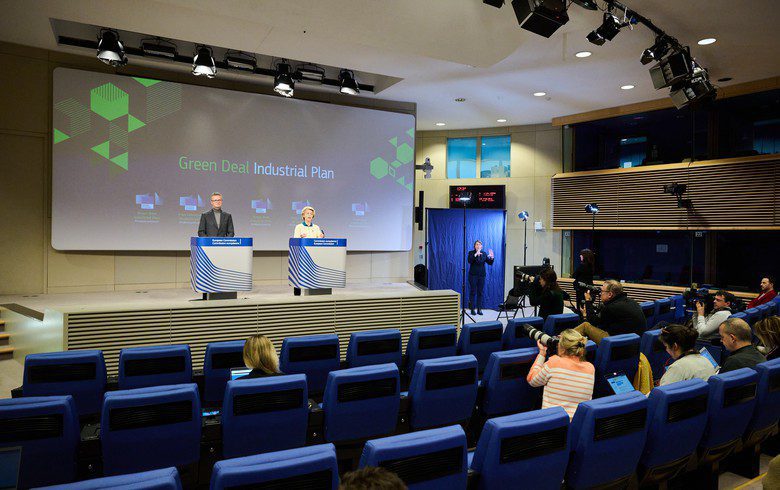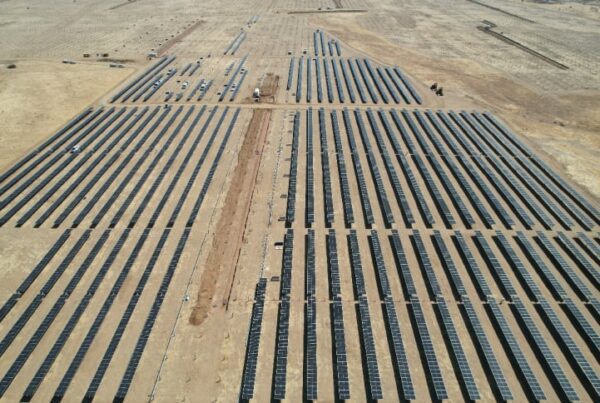
The European Commission today presented its Green Deal Industrial Plan to support Europe’s net-zero industry, moving in response to similar action by major economies such as the US with its Inflation Reduction Act.
The Green Deal Industrial Plan was announced last month by EC president Ursula von der Leyen in a speech at the World Economic Forum.
As previously outlined, the plan has four pillars: a simplified regulatory environment, faster access to finance, skills enhancement, and open trade for resilient supply chains.
As part of the first pillar, the Commission will put forward a Net-Zero Industry Act, which will identify goals for industrial capacity by 2030 and accelerate permitting. It will be complemented by the Critical Raw Materials Act seeking to ensure access to needed materials, and the reform of the electricity market design, which is to be presented in March.
With respect to funding, the Commission proposes to further adapt state aid rules. A crisis framework for state aid rules was adopted after Russia’s invasion of Ukraine.
Funding at the EU level is also planned with the purpose of avoiding fragmentation of the Single Market. The Commission wants to use the possibilities provided by REPowerEU, InvestEU and the Innovation Fund, von der Leyen said.
As the EU got rid of its dependency on Russian fossil fuels faster than expected, it can redirect the additional funding of REPowerEU, standing at about EUR 250 billion (USD 272bn), to net-zero industries, the EC president added.
For the mid-term, the Commission plans to propose a European Sovereignty Fund as part of the review of the Multi-annual financial framework before summer 2023.
The plans on skills include the establishment of Net-Zero Industry Academies. Concerning trade, the Commission said it will continue to develop the EU’s network of Free Trade Agreements and other forms of cooperation as it wants to make trade work for green transition.
(EUR 1 = USD 1.089)
Choose your newsletter by Renewables Now. Join for free!





